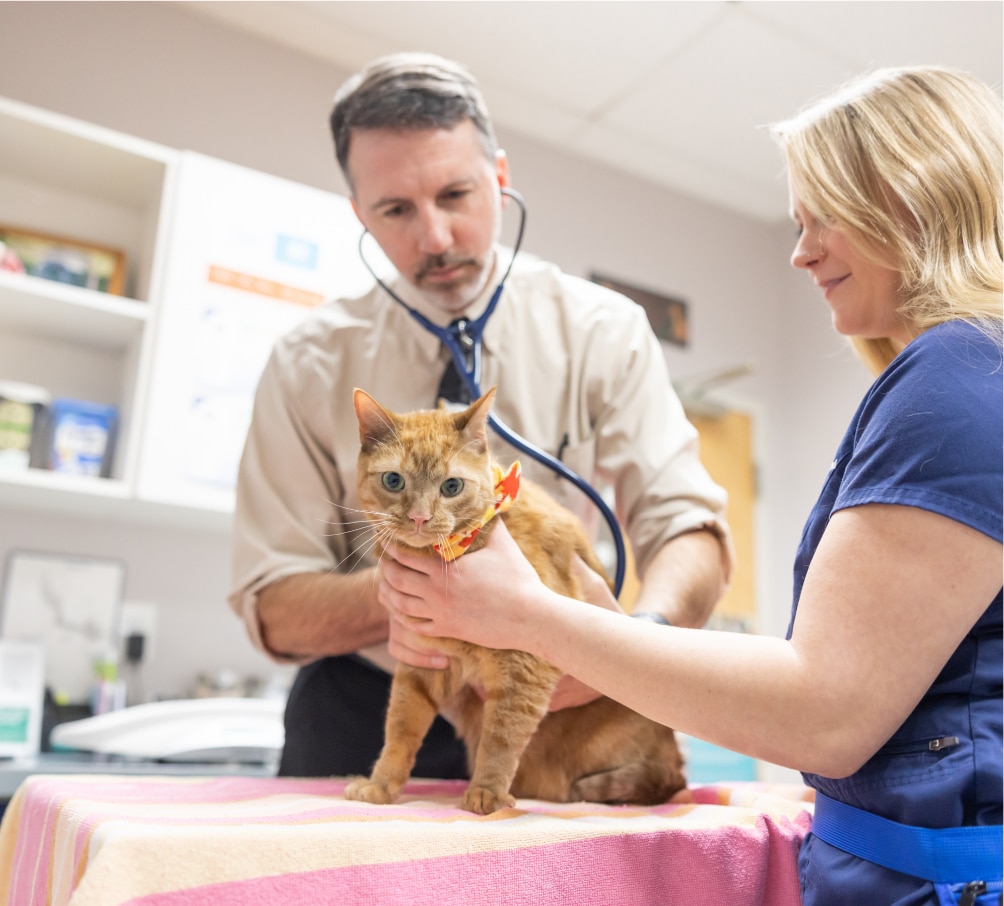Spraying is one of the most concerning and unpleasant behaviors cats can display.
Also known as urine marking, this happens when a cat aims urine at a vertical surface, without squatting, and with the tail straight in the air. It is most common in unneutered males, but also occurs in neutered males, as well as spayed and unspayed females.
Unfortunately, spraying is one of the leading causes for cats being dropped off at shelters. But if you have noticed your beloved furry friend is doing it, don’t give up hope. With the help of this article, and the consultation of a vet, you can stop your cat from spraying.
Why Do Cats Spray?
Cats most often spray because they feel stressed and insecure in their environment.
Like most of the animal world, cats use pheromones to communicate with other animals. Spraying is a way for your cat to mark his territory and warn other cats that this is his space.
It may also be used as a way to attract a potential mate, which explains the beheavior’s prevalence in unneutered males.
It’s important to note that cats do not understand punishment in the same way dogs do. Your cat is not simply misbehaving. Spraying is an instinctual and evolutionary behavior, so simply punishing a cat will not deter it. In fact, it may only cause your cat to be more stressed, and make the issue worse.
How to Stop Cats from Spraying
Whenever you notice your cat urinating outside of the litter box, your first step should be to make sure it is clean.
If it happens more than once with a clean litter box, you should bring the cat to a vet as soon as possible. The vet will be able to rule out any medical issues causing the inappropriate urination. This could include a urinary tract disease, or cystitis.
After that, you might consider the environmental factors that are causing this territorial behavior, and try to help your cat feel more secure. Some potential factors you can consider might include:
- Other Indoor Cats – Competition between other cats in the household can cause your cat to spray. You might consider separating aggressive cats. If the cats seem to get along, you can also try increasing the resources in their shared space. Make sure there are enough toys, water, litter boxes, climbing spaces, and hiding spots for everyone.
- Outdoor Cats – Other cats roaming in the neighborhood might also cause stress for your cat. Any way you can cut off access to the outdoor cats, such as blocking a window with a curtain, can help your cat feel safer.
- A Change in the Household – Cats can be sensitive to changes in the home or household. This could include the introduction of a new family member, moving to a new house, or even rearranging furniture. In this case, you should help your cat acclimate to the new person or environment as slowly as possible.
You can also help your cat by introducing his scent to the new territory in a much more pleasant way; Use a soft wash cloth and rub it gently on his face. Then rub that washcloth on the walls and furniture, or the clothes of the new person.
- The Mating Instinct – Finally, consider if your cat is not neutered or not spayed. The urge to mate could be causing them to mark their territory in search of a partner. Fixing your cat will likely help them feel more comfortable.
How to Clean Cat Spray
Cleaning cat spray properly is very important. Not only because it smells worse than regular cat urine, but also because if your cat continues to smell it, he will likely spray the area again.
While soap and water might get rid of the offensive scent for us, a cat’s sense of smell is much more sensitive.
You need to wash with enzyme-containing detergent in order to break down the urine. A solution of 50% white vinegar and 50% water can then be used for a second scrubbing. Afterward, keep him away from the area that he sprayed for as long as possible.
DO NOT use any cleaner that contains ammonia. Because urine also contains ammonia, this scent will trigger the spraying behavior in your cat.
Veterinary Hospital in Frederick, MD
If your cat is spraying or showing other worrisome symptoms, bring him in to Old Farm Veterinary Hospital!
Our team of caring and experienced veterinarians can diagnose any potential issues and regulate the wellness of your pet. We are a locally-owned business, conveniently located near Frederick, Maryland, and ready to help your pet feel better. Call Old Farm today!



